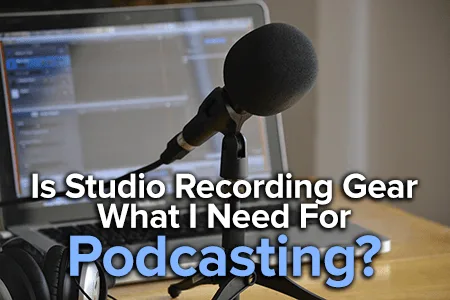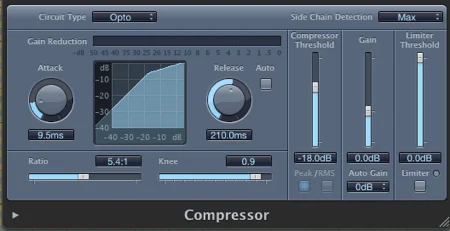The world of studio recording equipment is confusing to the uninitiated trying to get a foothold, and with manufacturers marketing their gear differently to outsiders, it’s no surprise that we received this week’s question about podcasting…

And thanks to Calvin, Justin, Jason, Andy, Doug, Shawn, Dominic, Daniel, Jamieson, Gabrielle, Anthony, Zaiden, and James for the positive comments. There were too many to post here in full, but thank you for taking the time to give us feedback. You keep us inspired!
Recording Gear Choices for Podcasting
Question:
I run a live podcast type setup, and a lot of your gear reviews are tailored to people recording and performing live music. Is the advice just as relevant to people and places like a radio broadcaster or home studio where the only thing being recorded through the mic is me talking?
I do want a high quality setup and am always looking for ways to improve it. But I don’t want to spend hundreds of dollars if I’m not making use of half of the options that make it so expensive or valuable.
Thanks,
Shawn
Answer:
Hi, Shawn, I hope all is well with you.
Yes, the advice is 100% applicable to home studio and radio broadcasting, especially the recording interfaces, preamps, compressors, equalizer info, etc. All of them are signal processing tools that apply to any sound, especially the human voice captured by microphone.
As a single channel vocalist / podcaster on a budget, where it’s just your voice alone, all you need is one mic and an interface with a decent preamp. Later, you can upgrade the preamp (it’s not the “coolest” piece of gear, but it is without a doubt the one that makes the highest impact on your quality).
If you’re so inclined, you can even use a USB microphone and not have to buy an interface, and can even get a 2nd USB mic later if you need two voices. The only issue is that they typically have very cheap preamplifiers built into them as well as cheaper analog-to-digital converters. You may save some money this way but you’ll pay for it with a lower quality recording.
But if you want to keep it cheap without hurting quality, you can EQ and compress in your recording software, like Logic Pro, Pro Tools, FL Studio, etc. You’ll do best to use software intended for musicians versus something overly simple promoted towards amateurs and passerby’s.
Even GarageBand will get the job done, but you’ll want access to the free, stock plugins (for EQ and compression), which some non-professional solutions won’t provide. That’s a bare minimum so do a check before committing to the learning curve.

I hope this helps! Best of luck with your podcast or whatever it is you’re doing. Here are a few articles you’ll find useful for mixing your recordings that I wrote myself:
- Recording Vocals at Home: Clean & Clear
- 14 Tips for Recording and Mixing Vocals – The Right Way…
- 13 More Vocal Recording Tips
There will be some slight overlap but those will tell you all you need to know. The 2nd one will give you some good settings for EQ and compression. Finally, if you haven’t explored the concept of acoustic treatment, it’s a direction you’ll want to go eventually if you want the most dry, clear vocals possible without room reverb muddying up your quality.
P.S. Thanks again for the questions. We always appreciate the questions, suggestions, compliments, and every other email or social media message we get. Feel free to ping us whenever you want and we’ll get back to you as fast as we can. Until next time!
Have fun and best of luck,
Jared